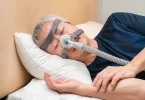When you are an active addict you tend to neglect personal hygiene, fail to eat healthy, and do not regularly exercise. The addict’s one and only goal is to get high. They become consumed with seeking out drugs and alcohol. But what happens when an addict is ready to quit? It’s not easy to change habits and stop destructive patterns of behavior without something else to occupy their time. Everyone exercises differently. Some of the more popular forms of addiction in recovery are as follows:
• Yoga – Bending, stretching, breathing and posing provides a positive channel for releasing negative emotions and coping with stress and anxiety. It is spiritual and asks that we take a step back, looking within to clearly understand what led to the addictive behavior. Yoga requires us to quiet our minds.
• Dance – We struggle to express deep emotions and blocked thoughts using words sometimes. By connecting to music, lyrics, and each other we can move and communicate and heal in ways we are unable to share when speaking.
• Weight Training – Studies show that lifting weights has been linked to a decrease in depression. It reduces symptoms more successfully than counseling. It requires a workout program that people take pride in accomplishing, and a high protein diet that is superior for the brain and aids in the well-being of a person’s mental state.
• Swimming – Aquatic therapy is a productive and effective way to alleviate joint and muscle pain that many addicts experience while in going through withdrawal during recovery. Swimming also helps improve sleep, an important part of overcoming addiction.
Getting into the habit of regular exercise while in recovery is one of the keys to success. For this reason, many rehabilitation centers have integrated exercise programs into their daily activities. As a teenager, I was addicted to many drugs. I lost interest in any type of physical activity. However, when I went to inpatient rehab, I found a new love for exercise and physical activity.
As a group, all of the inpatients were taken to the local YMCA. There I fell back in love with the game of basketball and also began lifting weights once again. My mood drastically increased. I was not as irritable and the cravings I had for doing drugs decreased exponentially. I felt all of the benefits of exercise listed below in this article.
Ways Exercise Benefits a Recovering Addict
Physical activity is one of the best alternatives to substance abuse. It can greatly benefit anyone, but for those in addiction recovery it can significantly increase their chance to achieve and maintain sobriety. There are a number of reasons why exercise should be an important part of your recovery routine.
1. Exercise helps addicts stay in good physical shape. Anyone who is in good physical shape will be less likely to develop certain medical conditions such as cardiovascular disease and diabetes.
2. Exercise releases endorphin naturally without the help of drug or alcohol. This is a familiar feeling to an addict that can help curb cravings.
3. Exercise gives people a mental boost in serotonin and improves their mood. Many recovering addicts suffer from low self-esteem. Getting into shape can boost confidence and improve self-image.
4. Exercise helps eliminate mental and physical stress caused during early recovery. Rather than turning to drugs and alcohol, exercise is a healthy outlet.
5. Regular and continued exercise increases energy levels.
6. Withdrawal from drugs, such as opiates and Benedictines, can cause restless leg syndrome. Exercise will minimize that.
Nurse Your Body Back to Health
Consuming supplements in early recovery is critical. It’s common for a recovering drug or alcohol addict to suffer from a B1, B12, folic acid and Vitamin C deficiency. People who are frequent drug and alcohol users often lose their appetite for normal food. When they do eat, it is usually unhealthy foods with little to no nutrients.
This can be damaging to vital organs, such as the gastrointestinal tract. Drugs and alcohol cause damage to the mucous membrane of the stomach that breaks down foods and sponges up the good stuff. Alcohol is one of the most dangerous substances in excess. It inhibits the liver’s ability to produce digestive enzymes. This makes it challenging for the body to absorb proteins, fats, B vitamins and fat-soluble vitamins.
I started really working out and eating healthy four years into my sobriety. It made my recovery ten times better. I dedicate my life to staying sober and helping others stay sober. And if I want to help people I must lead by example. Eating healthy, working out regularly and taking care of my brain are the three most vital aspects in my life.
A good multivitamin can help replenish these essential vitamins and minerals that the body requires to function properly. Therefore, in combination with a healthy exercise routine, a recovering addict can nurse their body and mind back to health properly.
AUTHOR’S BIO
Ben Emerling is a content writer based in Metro Detroit. Blogger by day and avid sports enthusiast by night, Ben uses his creative writing skills to help others achieve sobriety https://www.sunshinebehavioralhealth.com/
Having previously interned for 12up, Ben dedicates himself to health, wellness, team sports, and living sober.
Please follow and like us:









